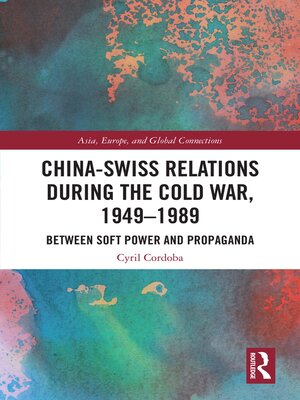China-Swiss Relations During the Cold War, 1949–1989
ebook ∣ Between Soft Power and Propaganda · Asia, Europe, and Global Connections
By Cyril Cordoba

Sign up to save your library
With an OverDrive account, you can save your favorite libraries for at-a-glance information about availability. Find out more about OverDrive accounts.
Find this title in Libby, the library reading app by OverDrive.



Search for a digital library with this title
Title found at these libraries:
| Library Name | Distance |
|---|---|
| Loading... |
During the Cold War, Switzerland functioned as a hub for Chinese propaganda networks. Despite its fierce anti-communism, the Swiss Confederation was one of the first capitalist countries to recognise the People's Republic of China (PRC). As a neutral country and as the home base for many international organisations, Switzerland represented a strategic centre for the spread of Maoism throughout the world. Focusing on cultural diplomacy and questioning the notion of soft power, this book explores how the PRC developed its influence and its prestige abroad through its Embassy in Bern, the most important in Western Europe. The book also discusses how China's approach in Switzerland, bypassing traditional diplomatic structures, and relying on contacts with individual people – "foreign friends" – was then used, and continues to be used, in many other countries, including the United States, France, and Japan.







